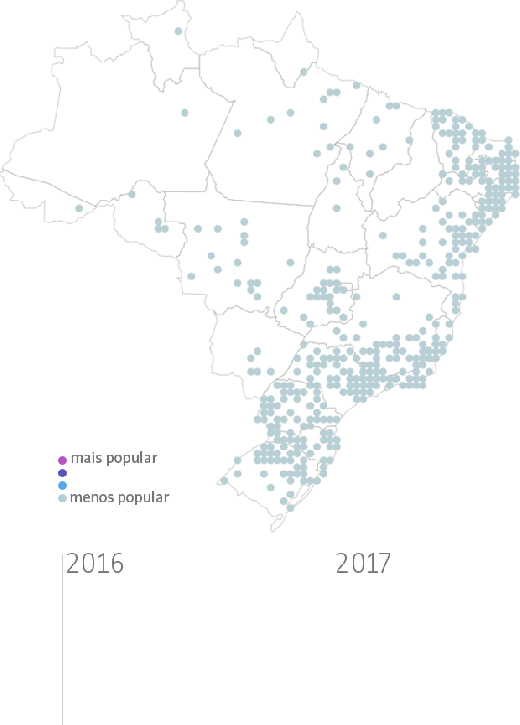Translated by Thomas Mathewson. This story was first published in December 2017 on Folha de S. Paulo website.
It was May of last year, and Brazilian music was being blasted at a nightclub in Beijing. Coming through the speakers was the already famous “funk” beat. And, as DJs would point out, it was working: the dance floor was crowded and people were dancing even if they couldn’t understand a word of the music.
Chinese DJ Puzzy Stack played “Pega no Phone” (or “Grab the phone”). Behind the song was Portuguese producer KKING KKONG. The singers on the track (or “funkeiros”, as Brazilian funk singers are called) are MC Lan, from São Paulo, and MC Johnny Oliver, from Rio de Janeiro.
After emerging and being developed in Rio de Janeiro for almost three decades, Brazilian funk finally started gaining traction in São Paulo in recent years before becoming popular in the country and the world over.
“The beat is just like samba: funk has become immortal”, said Iasmin Soares, whose artistic name is Iasmin Turbininha.
According to Ms. Soares, a resident of the Mangueira neighborhood in Rio de Janeiro, each community has created its own variant of Brazilian funk music. Among such variants are “arrocha funk” and “brega funk”.
Though technology has a lot to offer when it comes to making funk music, it’s still the MCs, DJs and producers who are responsible for defining the steps that the musical genre will ultimately take. These new variants are the result of technological modifications.
According to Brazilian Internet Steering Committee (CGI.br), the number of households with access to the internet has tripled over the past 10 years.
São Paulo has become the stepping stone that enabled the musical genre to really gain traction. The “ostentação” variant, which was a major breakthrough in the state capital, is less a chronicle about consumption, and more a form of becoming more palatable to engaged audiences, TVs, radios and record labels.
